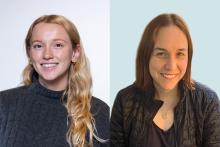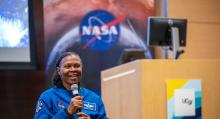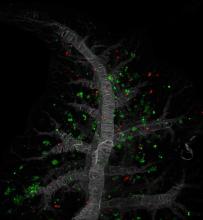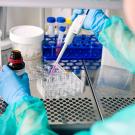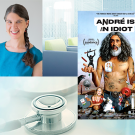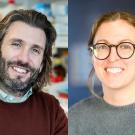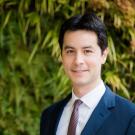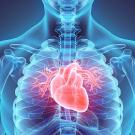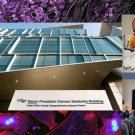News
Eleven Cancer Research Projects Funded in Fall 2025 RAP Cycle
Eleven investigators and teams were awarded grants in support of cancer research projects in the fall 2025 cycle of the UCSF Resource Allocation Program (RAP). Funded by various agencies across UCSF, the awards span a range of topics from cancer patient navigation to molecular imaging to immune
Addressing Young-Onset Colorectal Cancer: Q&A with Dr. Chloe Atreya
Colorectal cancer is rising in adults under 50, and the trend is reshaping how we think about screening, stigma, and care. At UCSF, Drs. Chloe Atreya and Katherine Van Loon, both GI oncologists, are launching a new Young-Onset Colorectal Cancer Program designed to meet the distinct medical and life
Two New Breakthroughs Advance Neurological Disorders and Cancer Research
How does origami-like DNA affect brain development? How do cancer-immune cell interactions prevent immune cell activity in tumors? Two breakthrough discoveries by UC San Francisco scientists answer these questions and could open new paths to preventing and treating conditions such as autism and
Should You Get Tested for Cervical Cancer? Here’s What to Know
Cervical cancer screenings are considered one of the most significant public health advances of the past 50 years, particularly in detecting HPV (human papillomavirus), the culprit of most cervical cancers. This month, the U.S. Department of Health and Human Services updated cervical cancer
New Division of Thoracic Surgery at UCSF Gets Inaugural Chief
Johannes R. Kratz, MD, has been named as the inaugural chief of UCSF’s Division of Thoracic Surgery, one of the leading academic robotic thoracic surgery programs in the western U.S. He brings a track record of innovation in surgical oncology and will guide multidisciplinary teams of surgeons
Uncovering Why Cancer Immunotherapy Leads to Heart Inflammation
Immune checkpoint inhibitors (ICIs) have revolutionized cancer treatment by using a patient’s own T-cells to target tumors. However, they can cause rare but potentially fatal cardiac inflammation known as ICI-myocarditis. This is particularly true in the most recent ICI combination treatment
